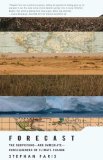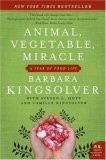Summary | Excerpt | Reviews | Beyond the book | Read-Alikes | Genres & Themes | Author Bio

How to Prevent Global Climate Catastrophe
by Mayer HillmanAn outstanding overview on global warming--and what we can do about it--from a distinguished world-class authority.
Climate change is the single biggest problem that humankind has ever had to face, as we continue with lifestyles that are way beyond the planet's limits. Mayer Hillman explains the real issues: what role technology can play, how you and your community can make changes, and what governments must do now to protect our planet for future generations. In The Suicidal Planet, he proposes:
Featuring the very latest information on global warming completely revised to include U.S. facts and figures, The Suicidal Planet takes us out of the problem and into the solution of our international crisis.
Chapter One
Beyond the Planet’s Limits
Climate Change: Why, How, and What Next?
Climate change is the most serious environmental threat that the world has ever faced. The dangers can hardly be exaggerated. Climate scientists predict that by the end of this century, temperatures could rise 10°F worldwide. But even if they rise by “just” 5°F, major parts of the earth’s surface could become uninhabitable and many species on the planet could be wiped out. Just within the next fifty years, there will be more heat waves, higher summer temperatures, fewer cold winters, and rising sea levels. As a consequence, hundreds of millions of people will be at serious risk from flooding, there will be a huge loss of life from excessively hot weather, diseases from warmer regions will become established, some species and habitats will be lost forever, and patterns of agriculture and business will have to change radically. And then, before too long, the whole world ...
The Suicidal Planet is not an enjoyable read, but it is, arguably, a necessary one. In the first section, the authors lay out the problem as they see it. If we continue on our current course, the Intergovernmental Panel on Climate Change (IPCC) estimates that average world temperatures will rise between 2.5°F and 10.4°F between 1990 and 2100. Temperature rises in currently colder areas would be more extreme, with Alaska, Canada and Northern Asia rising by 18°F.
To put things in perspective, the global temperature shift between the last Ice Age and now is believed to be 10°F; and an estimated 11°F increase in world temperatures was sufficient to wipe out 95% of species at the end of the Permian Period 250 million years ago.
Rationing cards could save our planet's environment, but it's difficult to see the world's governments ever agreeing to such drastic levels of rationing in time to make a difference. However, perhaps the threat of rationing cards will be enough to drive new technologies, encourage sensible cutbacks in consumption.
We have rated The Suicidal Planet a "3" (average) because of the narrow focus of its solution.
In their efforts to evangelize carbon rationing, the authors
downplay the potential for technical solutions that can go at least part way to
solving global warming. Worse, they effectively ignore population
management as part of the solution. Even though population growth (up
six-fold in 200 years from one billion to six billion people) surely must be recognized as
a key contributor to global emissions, population management plays no part in Suicidal Planet's proposed solution...continued
Full Review
(1497 words)
This review is available to non-members for a limited time. For full access,
become a member today.
(Reviewed by BookBrowse Review Team).
According to The Suicidal Planet:
This "beyond the book" feature is available to non-members for a limited time. Join today for full access.

If you liked The Suicidal Planet, try these:

by Stephan Faris
Published 2009
A vivid and illuminating portrayal of the surprising ways that climate change will affect the world in the near future—politically, economically, and culturally

by Barbara Kingsolver
Published 2008
Bestselling author Barbara Kingsolver returns with her first nonfiction narrative that will open your eyes in a hundred new ways to an old truth: You are what you eat.





